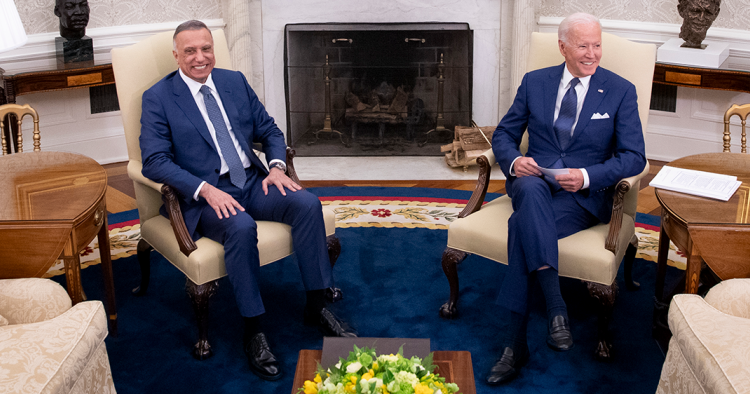There were two parts to the Iraqi prime minister’s request to President Biden on July 26 in their meeting at the White House: end Washington’s combat mission in Iraq but maintain U.S. military assistance there. The first part was aimed mostly at Mustafa al-Kadhimi’s domestic audience; the roughly 2,500 U.S. troops in Iraq are there primarily to advise and assist the Iraqi army. But the second part deserves a bit of thought.
Mr. Kadhimi has said repeatedly that the Iraqi army is now capable of defending the country without the help of U.S. troops. If that’s the case, then we need to shift our assistance, and more generally our relationship, from the counter-ISIS operational phase to a more “normal” state.
It’s only logical, and fair to the U.S. taxpayer, that our foreign aid to Baghdad should reflect facts on the ground. While ISIS still poses a threat—as shown by attacks on Iraqi troops in the past few months, the attack on a crowded Baghdad market that killed more than 35—it can no longer control territory or terrorize large segments of the Iraqi population.
The emergency conditions and authorities under which we have operated in Iraq since 2014, through which we have given the Iraqis billions of dollars in cash and equipment and fought with them side-by-side to stop ISIS’s reign of terror, are no longer relevant.
This doesn’t mean we should end our military assistance to the Iraqis. But we should do less, and differently.
The Iraqis don’t necessarily need more arms; they do need to learn how to better employ, integrate, and sustain the F-16s, armored vehicles, and other weapons they have. This requires something all of our Arab partners either struggle with a great deal or simply don’t have at all: proper defense governance.
Our posture in Iraq must focus a lot more on helping the Iraqis build defense institutional capacity so they can take full advantage of all the hardware we’ve given them and protect the security gains they’ve made.
Continue reading on Defense One
Photo by Tom Brenner-Pool/Getty Images
The Middle East Institute (MEI) is an independent, non-partisan, non-for-profit, educational organization. It does not engage in advocacy and its scholars’ opinions are their own. MEI welcomes financial donations, but retains sole editorial control over its work and its publications reflect only the authors’ views. For a listing of MEI donors, please click here.













